HERBAL TEAS OR TISANES WITHOUT CAFFEINE
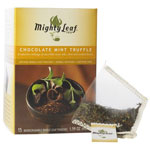
Chocolate Mint Truffle made with rooibos tea, an herbal plant also known as Red Tea from South Africa, is an intoxicating blend of chocolate cacao nibs, mint and rooibos leaves. Rooibos and chocolate are both known to be good sources of antioxidants. Enjoy this guilt-free indulgence, great for kids and adults alike.
Ingredients: Rooibos leaves, mint leaves, cacao nibs. Caution see if the chocolate causes a rise in blood pressure.
Rooibos Red bush Honey bush Fantastic Herbal Tea Antioxidants
"The logic behind antioxidants is that in our bodies there are certain unstable molecules. These molecules are oxidants, or more commonly called free radicals, and can wreak havoc in your body. The way to get rid of oxidants is of course with antioxidants.
Red bush and Honey bush Tea
Red bush and honey bush tea or more commonly known as Rooibos tea is a tea from South Africa. This is another source of herbal tea antioxidants. You can reduce pre-cancerous cells or they can be eliminated when you regularly consume this herbal tea.
Another plus of this distinctive tea is that it is completely caffeine free. You can also get good amounts of iron, fluoride, and Vitamin C from this wonderful tea. The antioxidants that are found in this tea are thought to be unique and will help you to keep healthy and slow down the aging process. All that in one little cup of tea!"
Rooibos Teas
Rooibos teas are herbal infusions made from a South African red bush and sometimes called "red tea." There are also green Rooibos teas that are just as delicious as the popular red teas. Rooibos teas are delicious iced or hot and come in a wide variety of flavors.
Health Benefits of Rooibos Tea:
High in antioxidants, vitamins and minerals
May help control allergies and fight colds
Good for your skin and complexion
Helps improve digestion
Naturally caffeine-free
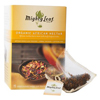
Rooibos Organic African Nectar Tea or red
tea is harvested during the summer (in the Southern Hemisphere). It is alkaline and beneficial for kidneys. Most of the tea is picked manually. At this stage, Rooibos is still green. Fermentation is essential
in order to enhance the flavor of the tea. Rooibos is fermented in mounds and
then spread out to dry in the sunlight. Fermentation turns the tea red. Rooibos’
nick name “red bush” does not apply to a live plant since it is
green until it is fermented. In the final process Rooibos is sterilized by steam,
dried in commercial dryers, sifted and packaged. Rooibos tea contains no colors, additives or preservatives, making
it a natural beverage. It contains no caffeine. According to studies conducted
in South Africa and Japan. Rooibos has been shown to aid in health problems such
as insomnia, irritability, headaches, nervous tension, and hypertension. Studies also show that this tea relieves anti- spasmodic agents,
which can relieve stomach cramping and colic in infants. In South Africa Rooibos has been used to treat allergies such
as hay fever, asthma and eczema very effectively. It is also used to treat irritated skin. Rooibos is brewed and
placed directly on infected areas. Rooibos contains anti - oxidants which can
help slow the aging process and boost the immune system. Rooibos is a great thirst quencher and is an excellent beverage
for active people, including children. This tea contains no oxalic acid, making it a good beverage for
people prone to kidney stones. Rooibos contains the minerals, copper, iron and
potassium, calcium, fluoride, zinc, manganese, alpha- hydroxy ( for healthy
skin ) and magnesium ( for the nervous system ) are also components of this
tea. In South Africa pregnant women and nursing mothers drink Rooibos because
it contains no caffeine.
South African fruit cooler
1 tsp. of Rooibos tea or one tea bag.
1/2 fresh orange
1 tsp. - tupelo honey- if needed
1 glass filled with ice
Boil water
Pour boiling water over Rooibos tea and steep 2- 5 min.
Pour tea into a glass filled with ice
squeeze 1/2 orange and stir
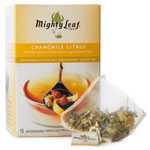
Chamomile Citrus Tea
Chamomile diminishes kidney inflammation, lessens platelet clumping. Chamomile tea is a pleasant
tea when flavored with a touch of tupelo honey. It is very relaxing at the end
of the day and is said to decrease inflammation surrounding kidneys. Chamomile seems to relieve kidney pains and liver pains. This is
a perfect tea for cystic organs.

Mighty Leaf makes chamomile citrus tea Chamomile(Chamaemelum nobilis)
A popular medicinal herb, Chamomile use as a calming and anti-inflammatory remedy dates back to ancient Greece, Rome and Egypt. With its soothing qualities, Chamomile can help calm the nerves and ease stomach pains.
Orange(Citrus aurantium amara)
Abundant in nutrients, the orange, a citrus fruit, contains high levels of Vitamin C, folic acid, beta-carotene and fiber. Rich in phytochemicals the fruit has also been shown to help prevent chronic health conditions including cancer and heart disease. Its flavonoids provide an anti-oxidant effect.

SUGAR COOKIE SLEIGH RIDE TEA
Ingredients: Milk thistle, roasted barley, orange peel, natural sugar cookie flavor with other natural flavors and vanilla bean. I have taken milk thistle to diminish cystic liver pain. For the health of my
kidney cysts, I avoid caffeine.
I was so happy to find a new tasty herb
tea by celestial seasonings called sugar cookie sleigh ride. During the
holiday season, celestial seasonings releases a few
holiday herb teas. I read ingredient labels and one was milk thistle. This tea especially with a little tupelo honey tastes like a sugar
cookie and it also contains milk thistle, an herb I found useful when my
cystic liver was so very large. Milk thistle has noticeably relieved
pain from my own cystic liver. That is, I took it for a week, noticed
the pain disappeared; then I stopped it for a week, the pain returned;
then I took milk thistle once again and the pain left. So-oo for the
moment I am enjoying sugar cookie sleigh ride herbal tea.
 The active
ingredient of milk thistle is silymarin. The active
ingredient of milk thistle is silymarin.

VERONICA SPEEDWELL TEA
Speedwell plant is rich in vitamins, tannins, and the glycoside aucubin , which has antiinflammatory, diuretic and liver protective actions. Speedwell possesses a somewhat bitter, astringent taste and tea-like smell. It was thus used as a substitute for tea in France during the 19 th century where it was called the d'Europe, or " Europe tea." Speedwell tea was thought to be an excellent health tonic and promoter of relaxation. Speedwell tea has also been used as a blood-cleansing agent and purifier. Its pleasant taste and aroma makes speedwell a delightful drink. It is taken in France as an excellent substitute for tea.

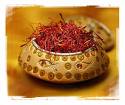
SAFFRON TEA
Saffron eases the pain from cystic organs. It helps to maintain the integrity of the walls of the blood vessels so they do not burst as easily. Saffron stimulates the body to lay down blood vessels around any blockage or bursting. Cysts will bleed if blood pressure is elevated; or if the kidneys or the liver is enlarged with numerous cysts; or if there is some trauma to cystic organs. Diminish episodes of bleeding into a cyst and the associated pain by keeping blood pressure well controlled 100/70 -110/70 - 120/80; by keeping cystic kidneys and cystic liver small (sometimes this is not possible); and by minimizing trauma. I would think if we could do one more thing, this too might help diminish bursting cysts and that is to maintain the blood vessel wall intact; to maintain the integrity of the blood vessel walls. This is another thing that saffron can help accomplish. Saffron Tea helps relieve symptoms from cystic livers. When I first tried
it, I found it bitter. Now my system relaxes with each sip. Saffron keeps blood
vessels patent; lays down new vessels, lowers blood pressure, relieves pains
from cystic organs, and really helps cystic livers.
To read a medical research article about the positive effects of saffron, click
here. This article done with animal studies and saffron extract suggests
"The results obtained in the present investigation suggest
that the saffron extract and its active constituent, crocin, have an overall
protective effect against kidney ischemia/reperfusion injury in a rat model."
Saffron helps
1. Ease the pain from a cystic liver or cystic kidneys.
2.. Lowers blood pressure
3. Diminishes spontaneous bursting of tiny capillaries
4. Helps diminish bursting cysts
5. Stimulates the body to lay down new blood vessels
6. Protects the integrity of DNA
7. Helps a cystic liver by increasing the metabolism of estrogen through the liver
8. Aphrodisiac effect
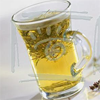
THYME TEA
is a very pleasant tea,
especially lemon thyme. I enjoy a small cup following a meal. It was offered
on the menu in Paris at Robuchon's bistro.
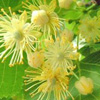
LINDEN FLOWER TILLEUL
(Tilleul). Linden
flower is said to promote perspiration and for this reason it is said to have
diaphoretic effect, helping the body to strengthen the immune system. I have
not found it to be dehydrating but rather an overall warming effecting and soothing
effect. Linden's reputed antispasmodic action, particularly in the intestines,
has been confirmed in at least one human trial. This tea is considered safe
for children and there are no known reasons to avoid it during pregnancy or
while breast-feeding. Even
the bark of the Linden tree is useful; homeopathic medicine uses it to treat
kidney and gout stones. Uric acid forms painful gout crystals deposited in the
joints. Uric acid is elevated in PKD polycystic kidney disease. I do not know if it is
elevated in polycystic liver disease alone. I suspect that linden flower tea
is high in potassium. Linden tree bark charcoal is an excellent absorbent, and
is useful in absorbing toxins. It also calms a stressed digestive
system allowing digestive enzymes to be produced and released. Indigestion and
nervous vomiting are also treated with this ingredient. Acid reflux is common
with PLD polycystic liver disease and Tilleul might help this symptom. Linden
(Tilleul) is said to promote perspiration and for this reason
it is said to have diaphoretic effect. Linden helps the body to strengthen the immune
system. This tea
is considered safe for children and there are no known reasons to avoid it during
pregnancy or while breast-feeding.

LEMON JUICE
squeezed in a cup of hot water is a useful tea for relieving pain. More on lemons.

HIBISCUS TEA
Hibiscus flower is used as an offering to goddess Kali and Lord Ganesha in Hindu worship. Dried hibiscus flower is edible, and is often considered a delicacy. Hibiscus has antihypertensive properties and was recently tested in a double blind trial with lisinopril. I was amazed that researchers did a double blind study with hibiscus and ace inhibitors and found hibiscus to be beneficial in that hibiscus did not raise potassium levels while continuing to block the angiotensin receptor site, a contributor to high blood pressure especially for PKD'rs.
Alternative Medicine Review June, 2007
Clinical effects produced by a standardized herbal medicinal product of Hibiscus sabdariffa on patients with hypertension. A randomized, double blind, lisinopril-controlled clinical trial.
A. Herrera-Arellano
Hibiscus sabdariffa L. (Malvaceae) has been used in different countries as an antihypertensive medication. Pharmacological work has demonstrated that this effect is probably produced by an inhibition of the angiotensin-converting enzyme (ACE). Two clinical trials have confirmed the antihypertensive effect using watery infusions, in which a natriuretic effect was also detected. To compare therapeutic effectiveness, tolerability, and safety, as well as the effect on serum electrolytes and the ACE inhibitory effect of a herbal medicinal product prepared from the dried extract of H. sabdariffa calyxes (HsHMP) with those of lisinopril on patients with hypertension (HT), a randomized, controlled, and double-blind clinical trial was conducted. Patients of either sex, 25-61 years of age, with hypertension stage I or II, were daily treated for 4 weeks with the HsHME 250 mg of total anthocyanins per dose (experimental group), or 10 mg of lisinopril (control group). Outcome variables included effectiveness (diastolic blood pressure [DBP] reduction, >or = 10 mmHg), safety (absence of pathological modifications in the biochemical tests of hepatic and renal function), tolerability (absence of intense side effects), effect on serum electrolytes, and effect on ACE activity. Basal analysis included 193 subjects (100 in the experimental group), while outcome variable analysis integrated 171. Results showed that the experimental treatment decreased blood pressure (BP) from 146.48/97.77 to 129.89/85.96 mmHg, reaching an absolute reduction of 17.14/11.97 mmHg (11.58/12.21%, p < 0.05). The experimental treatment showed therapeutic effectiveness of 65.12% as well as tolerability and safety of 100%. BP reductions and therapeutic effectiveness were lower than those obtained with lisinopril (p < 0.05). Under the experimental treatment, the serum chlorine level increased from 91.71 to 95.13 mmol/L (p = 0.0001), the sodium level showed a tendency to decrease (from 139.09 to 137.35, p = 0.07), while potassium level was not modified. ACE plasmatic activity was inhibited by HsHMP from 44.049 to 30.1 Units (Us; p = 0.0001). In conclusion, the HsHMP exerted important antihypertensive effectiveness with a wide margin of tolerability and safety, while it also significantly reduced plasma ACE activity and demonstrated a tendency to reduce serum sodium (Na) concentrations without modifying potassium (K) levels. Further studies are necessary for evaluating the dose-dependency of HsHMP and for detecting lower effective doses.
Planta Med 2007;73:6-12.

ROSE HIPS TEA
Rose hips contains vitamin A, D, E and is particularly high in C (more than oranges), essential fatty acids, antioxidant flavonoids, iron, anti-inflammatory, prevent urinary tract infections, and soothing to drink. To read about rose hips click here. During World War II when imports of citrus products to Great Britain were limited, tons of rose hips were harvested there from the wild to make rose hip syrup as a vitamin C. In AD 77 the Roman writer Pliny recorded 32 disorders that responded to treatment with rose preparations. Medieval herbals contained many entries that tell of the restorative properties of rose preparations. The anti-inflammatory properties of rose hips have recently been shown to be useful in the treatment of patients suffering from knee or hip osteoarthritis. Scientists in Denmark reported that patients who daily consumed standardized rose hip powder (made from dog rose) experienced significantly less joint stiffness and pain, and an improved general well-being and mood after 3 to 4 months of treatment. Rose hips also contain carotenoid pigments, plant sterols, tocotrienols and a very high level of anthocyanins, catechins and other polyphenolics, known phytochemicals to protect against cancer and cardiovascular disease (CVD). They also contain up to 5 % by weight of pectin, a soluble fiber that protects against CVD. In clinical trials, rose hips were seen to reduce C-reactive protein levels.
Here is a recipe to help with bladder infections
4 bags of rose hips hibiscus tea bags
4 cups of hot water - add tea bags to hot water and allow to steep for ten minutes. Then add the following ingredients:
4 cups of cranberry juice
slice of lemon
tupelo honey for added sweetness if desired
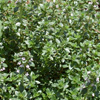 LEMON THYME LEMON THYME
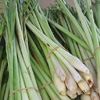 LEMON GRASS LEMON GRASS
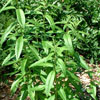 LEMON VERBENA LEMON VERBENA
Lemon Thyme, Lemon Grass, and Lemon Verbena are pleasant teas. Lemon grass grows in warmer climates. Lemon verbena is useful for bouts of herpes zoster when made into Melissa cream. This grows easily in the Blueridge mountains of Virginia. When fall is over, hang it upside down in the garage and allow it to air dry. Then crumble the dried leaves, pour hot water over it; allow it to steep in a crock pot for a refreshing tea. A crock pot will keep these tea infusions a long time while allowing them to steep at incredibly low temperatures which maximizes their potency.

MINT TEA
If one has reflux symptoms, the mint family of teas increases acid reflux, commonly associated with enlarged cystic organs. Mint tea, peppermint, spearmint are lovely teas to drink that are very refreshing. In the South of the USA, Southerners oftentimes drink mint juleps.
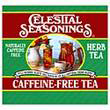
AVOID CAFFEINE FREE HERBAL TEA
Caffeine Free Herbal Tea by Celestial Seasonings
Ingredients: Blackberry leaves, roasted chicory, hawthorn, hibiscus and natural tea flavor with other natural flavors. The one harmful ingredient could be hawthorn. This can give blood pressure spikes.
For years I could not figure out why my blood pressure would spike at the Mayo. I discovered traveling was the one time I would drink copious amounts of Caffeine free herbal tea by Celestial Seasonings, only while traveling. It was convenient; would fit in my pocket and could drink a soothing tea with the addition of hot water. Once I quit the tea the blood pressure spiking resolved. I added daily walks; added lowering my salt intake; switched to Himalayan pink salt, and stayed warm when traveling to the Mayo. Cold weather will raise blood pressure. I also occasionally take grapeseed extract. Careful with this supplement, if you take too much it can make you dizzy. Now I am content to take no blood pressure medication and my own blood pressure remains at 108/68 - 120/80.
  AVOID CELESTIAL SEASONINGS RED ZINGER AVOID CELESTIAL SEASONINGS RED ZINGER
This tea mixture contains licorice, hawthorne berries and more herbs that raise blood pressure. Try to find a pure rose hips hibiscus tea.
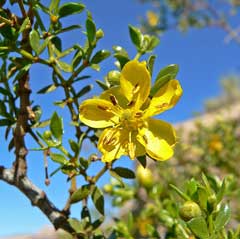 AVOID CHAPARRAL TEA AVOID CHAPARRAL TEA
Chaparral tea. This tea causes kidney decline and contributes to kidney damage.
 CELESTIAL SEASONINGS HERBAL TEA CELESTIAL SEASONINGS HERBAL TEA
Generally read labels as these teas can be a bit tricky. Check ingredients carefully, avoid those that contain licorice, hawthorne berries, ginseng, and other herbs that can raise blood pressure.
Many Celestial seasonings teas can increase symptoms from cystic organs. Pure chamomile
is fine. Rose hips and hibiscus teas are also fine provided they are not flavored
with licorice. |